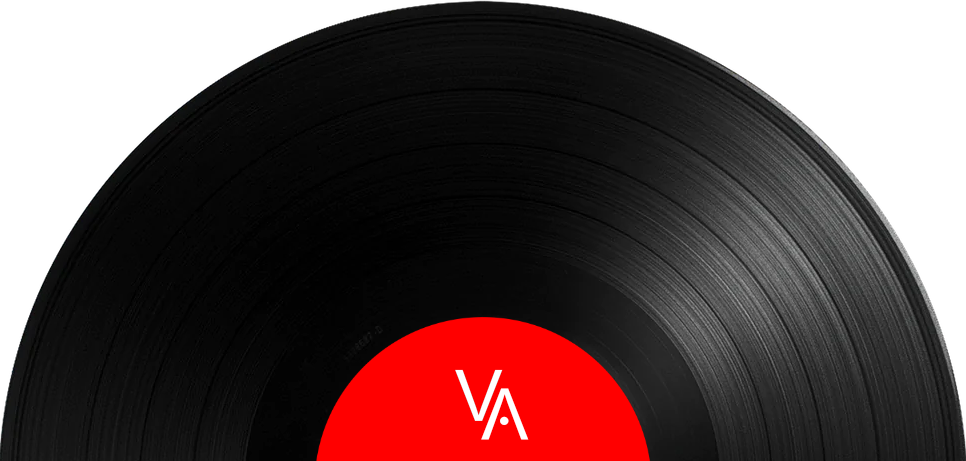
James Harris is said to have earned the name Shakey Jake due to his ability to roll dice and win money, something he loved to do. But as good/lucky as he was at gambling, the Arkansas born harmonica player and singer was an even better mouth harp player. This record was recorded in 1960 at Rudy Van Gelder’s New Jersey studio and released the following year. Shakey brought guitarist Jimmie Lee Robinson - already well known for his work with Little Walter - with him. It was a great choice because Robinson's contributions to this record are spot on. Both men had a profound understanding of blues music.
When he was just seven-years-old Shakey's family relocated to Chicago, where he gradually learned the rudiments of the blues harp but didn't perform professionally until 1955.
His debut recording, a single called Call Me if You Need Me, was released by Artistic Records in 1958 and featured his nephew, Magic Sam, and Syl Johnson. It was produced by none other than Willie Dixon, and while Shakey wasn't paid for the session he is said to have won $700 shooting craps with label owner Eli Toscano - more than he would have got paid for the session, it should be noted.
In 1960, Shakey released an album called Good Times, on Bluesville Records, that strangely paired him with jazz musicians Jack McDuff and Bill Jennings. It was an interesting musical experiment that sold modestly well. Mouth Harp Blues came a year later and returned Shakey to the traditional blues stylings he was most comfortable with. He also hit the road around this time, and was a featured performer on the American Folk Blues Festival tour in 1962.
Throughout the 1960s Shakey and Magic Sam appeared regularly together in several Chicago-area clubs and were caught on tape at Sylvio's, in 1966, singing Sawed Off Shotgun and Dirty Work Going' On,. Both songs would later appear on the Magic Sam Black Top LP, Live At Sylvio's.
Shakey was always very supportive of other musicians and even helped Luther Allison secure his first record deal. Allison and Shakey would eventually record together in Los Angeles on the Further On Up The Road LP for the World Pacific label. Most people would be surprised to learn that during this time Shakey also briefly owned his own nightclub and record label, which were just getting going when ill health brought Shakey home to Arkansas, where he died, aged just 68, in 1990. Magic Sam predeceased him by more than 20 years after suffering a heart attack at age 32 in 1969, and Luther Allison followed in 1997 after being diagnosed with lung and brain cancer at age 58.
This record is so good - laid back, easy blues at its finest. Originally released on Prestige in 1961 as a mono recording, there have only been a few re-issues over the years. My copy is the Ace reissue, which appeared in 1986. The latest re-issue is a 45-RPM audiophile pressing on 180-gram vinyl that Analogue Productions put out as part of their Fantasy 45 series in 2003. As much as I like audiophile records, I don't feel the need to update my Ace LP. Also, a record spinning at 45 RPM means I'd have to get up more often to flip it over and I'd rather not have to do that.
Every track on this record is a winner. The slow blues title track opens side one, and it's exactly the kind of blues I could listen to it all day long. The slow jamming interplay between guitar, piano and Shakey's harmonica - you can't beat it when it's done this well, and you can tell when someone tries to do it but can't pull it off. That isn't the case here and this kind of playing, the intuitiveness between the assembled players, can't be faked. Keith Richards comes to mind. For some reason I can see him playing guitar on this record..
The funny thing about this record is that a lot of reviewers refer to it as a lesser work, something that I do not understand. I've even seen the word "unfortunate" used to describe it, which completely escapes me. I can't say it loud enough: this is a good blues record.
Before I acquired this record I hadn't really listened to much Shakey Jake. I don't know why I bought it, to tell you the truth. But once I played it I was hooked, and now every time I go into a used record store I look in the blues section for more Shakey Jake. There aren't a lot of Shakey Jake records out there, and they're not easy to find (although he does appear on several compilations that are). But when I do find Shakey Jake records they're usually pretty cheap, in the $20 range, and I just buy them. I somehow just know they'll be good listens.
James Harris is said to have earned the name Shakey Jake due to his ability to roll dice and win money, something he loved to do. But as good/lucky as he was at gambling, the Arkansas born harmonica player and singer was an even better mouth harp player. This record was recorded in 1960 at Rudy Van Gelder’s New Jersey studio and released the following year. Shakey brought guitarist Jimmie Lee Robinson - already well known for his work with Little Walter - with him. It was a great choice because Robinson's contributions to this record are spot on. Both men had a profound understanding of blues music.
When he was just seven-years-old Shakey's family relocated to Chicago, where he gradually learned the rudiments of the blues harp but didn't perform professionally until 1955.
His debut recording, a single called Call Me if You Need Me, was released by Artistic Records in 1958 and featured his nephew, Magic Sam, and Syl Johnson. It was produced by none other than Willie Dixon, and while Shakey wasn't paid for the session he is said to have won $700 shooting craps with label owner Eli Toscano - more than he would have got paid for the session, it should be noted.
In 1960, Shakey released an album called Good Times, on Bluesville Records, that strangely paired him with jazz musicians Jack McDuff and Bill Jennings. It was an interesting musical experiment that sold modestly well. Mouth Harp Blues came a year later and returned Shakey to the traditional blues stylings he was most comfortable with. He also hit the road around this time, and was a featured performer on the American Folk Blues Festival tour in 1962.
Throughout the 1960s Shakey and Magic Sam appeared regularly together in several Chicago-area clubs and were caught on tape at Sylvio's, in 1966, singing Sawed Off Shotgun and Dirty Work Going' On,. Both songs would later appear on the Magic Sam Black Top LP, Live At Sylvio's.
Shakey was always very supportive of other musicians and even helped Luther Allison secure his first record deal. Allison and Shakey would eventually record together in Los Angeles on the Further On Up The Road LP for the World Pacific label. Most people would be surprised to learn that during this time Shakey also briefly owned his own nightclub and record label, which were just getting going when ill health brought Shakey home to Arkansas, where he died, aged just 68, in 1990. Magic Sam predeceased him by more than 20 years after suffering a heart attack at age 32 in 1969, and Luther Allison followed in 1997 after being diagnosed with lung and brain cancer at age 58.
This record is so good - laid back, easy blues at its finest. Originally released on Prestige in 1961 as a mono recording, there have only been a few re-issues over the years. My copy is the Ace reissue, which appeared in 1986. The latest re-issue is a 45-RPM audiophile pressing on 180-gram vinyl that Analogue Productions put out as part of their Fantasy 45 series in 2003. As much as I like audiophile records, I don't feel the need to update my Ace LP. Also, a record spinning at 45 RPM means I'd have to get up more often to flip it over and I'd rather not have to do that.
Every track on this record is a winner. The slow blues title track opens side one, and it's exactly the kind of blues I could listen to it all day long. The slow jamming interplay between guitar, piano and Shakey's harmonica - you can't beat it when it's done this well, and you can tell when someone tries to do it but can't pull it off. That isn't the case here and this kind of playing, the intuitiveness between the assembled players, can't be faked. Keith Richards comes to mind. For some reason I can see him playing guitar on this record..
The funny thing about this record is that a lot of reviewers refer to it as a lesser work, something that I do not understand. I've even seen the word "unfortunate" used to describe it, which completely escapes me. I can't say it loud enough: this is a good blues record.
Before I acquired this record I hadn't really listened to much Shakey Jake. I don't know why I bought it, to tell you the truth. But once I played it I was hooked, and now every time I go into a used record store I look in the blues section for more Shakey Jake. There aren't a lot of Shakey Jake records out there, and they're not easy to find (although he does appear on several compilations that are). But when I do find Shakey Jake records they're usually pretty cheap, in the $20 range, and I just buy them. I somehow just know they'll be good listens.


